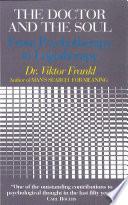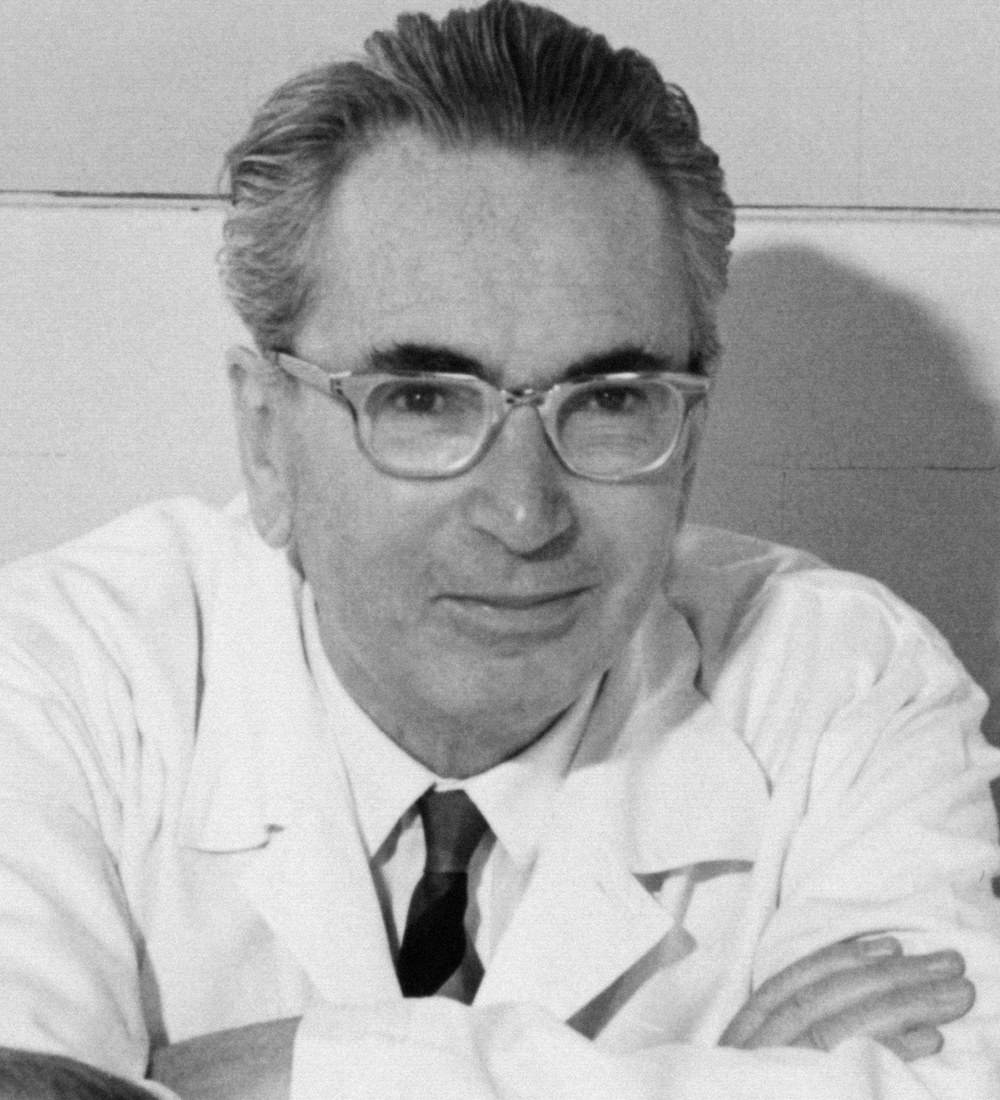Works

Man's Search for Meaning
Viktor E. Frankl
The Doctor and the Soul
Viktor E. FranklFamous Viktor E. Frankl Quotes
“Those who have a 'why' to live, can bear with almost any 'how'.”
Source: Quoted in Man's Search for Meaning and attributed to Friedrich Nietzsche.

“Happiness cannot be pursued; it must ensue.”
Man's Search for Meaning
Variant: But happiness cannot be pursued; it must ensue.
“An abnormal reaction to an abnormal situation is normal behavior.”
Source: Man's Search for Meaning (1946; 1959; 1984), p. 32 in the 1992 edition, ISBN 0807014265, Beacon Press
Viktor E. Frankl Quotes about life
Man's Search for Meaning (1946; 1959; 1984)
Context: The way in which a man accepts his fate and all the suffering it entails, the way in which he takes up his cross, gives him ample opportunity — even under the most difficult circumstances — to add a deeper meaning to his life. It may remain brave, dignified and unselfish. Or in the bitter fight for self-preservation he may forget his human dignity and become no more than an animal. Here lies the chance for a man either to make use of or to forgo the opportunities of attaining the moral values that a difficult situation may afford him. And this decides whether he is worthy of his sufferings or not.
Man's Search for Meaning (1946; 1959; 1984)
Context: A thought transfixed me: for the first time in my life I saw the truth as it is set into song by so many poets, proclaimed as the final wisdom by so many thinkers. The truth — that love is the ultimate and the highest goal to which man can aspire. Then I grasped the meaning of the greatest secret that human poetry and human thought and belief have to impart: The salvation of man is through love and in love. … For the first time in my life I was able to understand the meaning of the words, "The angels are lost in perpetual contemplation of an infinite glory."
Source: Man's Search For Meaning: The classic tribute to hope from the Holocaust
Source: Man's Search for Meaning (1946; 1959; 1984), p. 67 in the 1959 Beacon Press edition
Viktor E. Frankl Quotes about suffering
Source: Man's Search for Meaning
“To suffer unecessarily is masochistic rather than heroic.”
Variant: To Suffer unnecessarily is masochistic rather than heroic.
Source: Man's Search for Meaning
Viktor E. Frankl: Trending quotes
Man's Search for Meaning (1946; 1959; 1984)
Viktor E. Frankl Quotes
“When we are no longer able to change a situation, we are challenged to change ourselves.”
Source: Man's Search for Meaning
Source: Man's Search for Meaning
Source: Man's Search for Meaning
“The salvation of man is through love and in love.”
Source: Man's Search for Meaning (1946; 1959; 1984)
Context: A thought transfixed me: for the first time in my life I saw the truth as it is set into song by so many poets, proclaimed as the final wisdom by so many thinkers. The truth — that love is the ultimate and the highest goal to which man can aspire. Then I grasped the meaning of the greatest secret that human poetry and human thought and belief have to impart: The salvation of man is through love and in love. … For the first time in my life I was able to understand the meaning of the words, "The angels are lost in perpetual contemplation of an infinite glory."
“It is true, Logotherapy, deals with the Logos; it deals with Meaning.”
Man's Search for Ultimate Meaning (1997)
Context: It is true, Logotherapy, deals with the Logos; it deals with Meaning. Specifically I see Logotherapy in helping others to see meaning in life. But we cannot “give” meaning to the life of others. And if this is true of meaning per se, how much does it hold for Ultimate Meaning?
“I do not forget any good deed done to me & I do not carry a grudge for a bad one.”
Source: Man's Search for Meaning
“It is not freedom from conditions, but it is freedom to take a stand toward the conditions.”
Source: Man's Search for Meaning
“Fear makes come true that which one is afraid of.”
Source: Man's Search for Meaning
“The truth-that love is the highest goal to which man can aspire.”
Source: Man's Search for Meaning
Source: Man's Search for Meaning
Source: Man's Search for Meaning
Source: Man's Search for Ultimate Meaning
Source: Man's Search for Meaning (1946; 1959; 1984), p. 126 in the 1984 Pocket Books edition
Man's Search for Meaning (1946; 1959; 1984)
“You may of course ask whether we really need to refer to "saints."”
Postscript 1984 : The Case for a Tragic Optimism, based on a lecture at the Third World Congress of Logotherapy, Regensburg University (19 June 1983)
Man's Search for Meaning (1946; 1959; 1984)
Context: You may of course ask whether we really need to refer to "saints." Wouldn't it suffice just to refer to decent people? It is true that they form a minority. More than that, they always will remain a minority. And yet I see therein the very challenge to join the minority. For the world is in a bad state, but everything will become still worse unless each of us does his best.
So, let us be alert — alert in a twofold sense:
Since Auschwitz we know what man is capable of.
And since Hiroshima we know what is at stake.
Man's Search for Ultimate Meaning (1997)
Context: It is true, Logotherapy, deals with the Logos; it deals with Meaning. Specifically I see Logotherapy in helping others to see meaning in life. But we cannot “give” meaning to the life of others. And if this is true of meaning per se, how much does it hold for Ultimate Meaning?
Source: Man's Search for Meaning
Source: Man's Search for Meaning
Source: Man's Search for Meaning
“There are things which must cause you to lose your reason or you have none to lose”
Source: Man's Search for Meaning
“Since Auschwitz we know what man is capable of.
And since Hiroshima we know what is at stake.”
Postscript 1984 : The Case for a Tragic Optimism, based on a lecture at the Third World Congress of Logotherapy, Regensburg University (19 June 1983)
Variant: So, let us be alert in a twofold sense: Since Auschwitz we know what man is capable of. And since Hiroshima we know what is at stake.
Source: Man's Search for Meaning (1946; 1959; 1984)
Context: You may of course ask whether we really need to refer to "saints." Wouldn't it suffice just to refer to decent people? It is true that they form a minority. More than that, they always will remain a minority. And yet I see therein the very challenge to join the minority. For the world is in a bad state, but everything will become still worse unless each of us does his best.
So, let us be alert — alert in a twofold sense:
Since Auschwitz we know what man is capable of.
And since Hiroshima we know what is at stake.
Source: Man's Search for Meaning
“It is a peculiarity of man that he can only live by looking to the future.”
Source: Man's Search for Meaning
